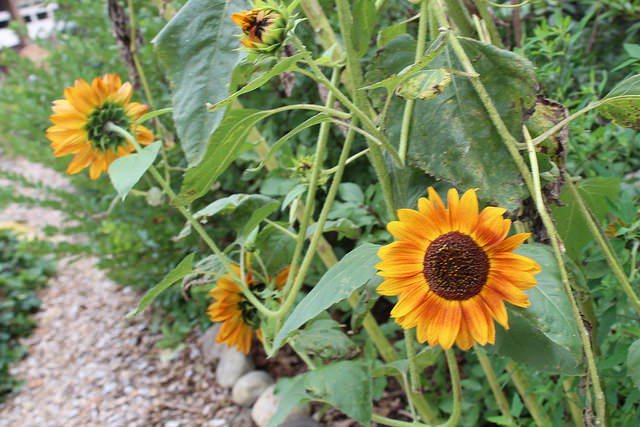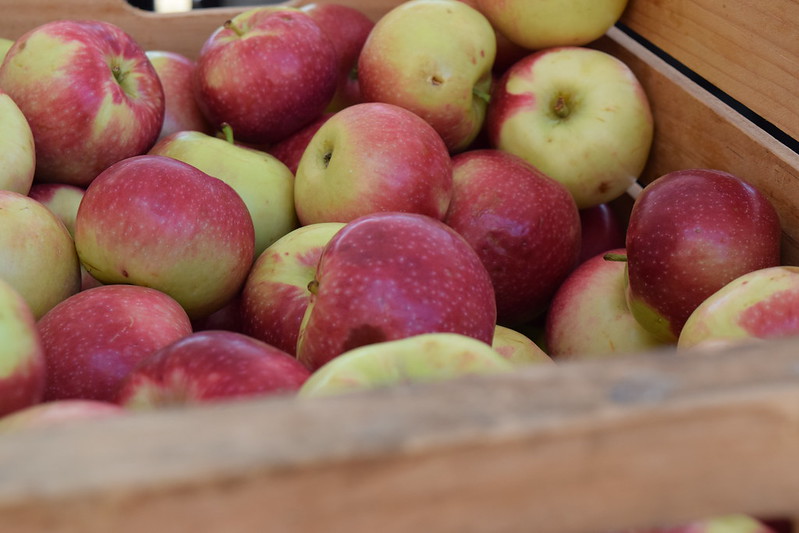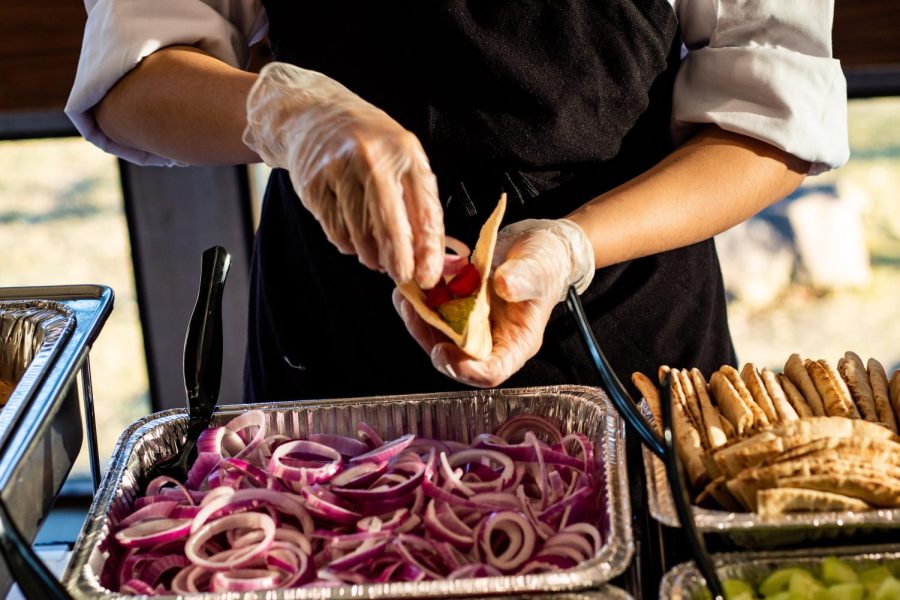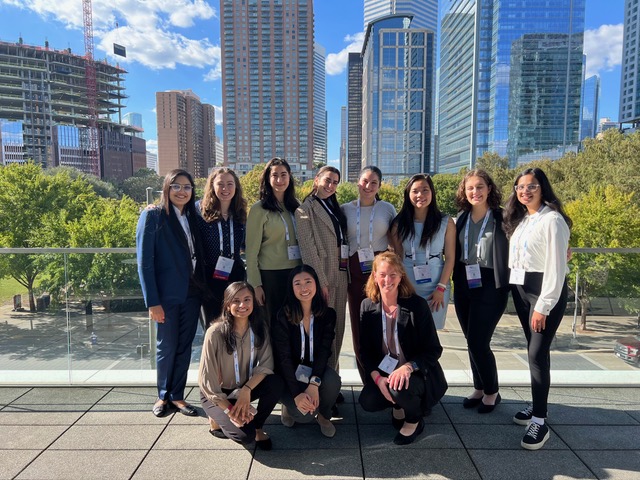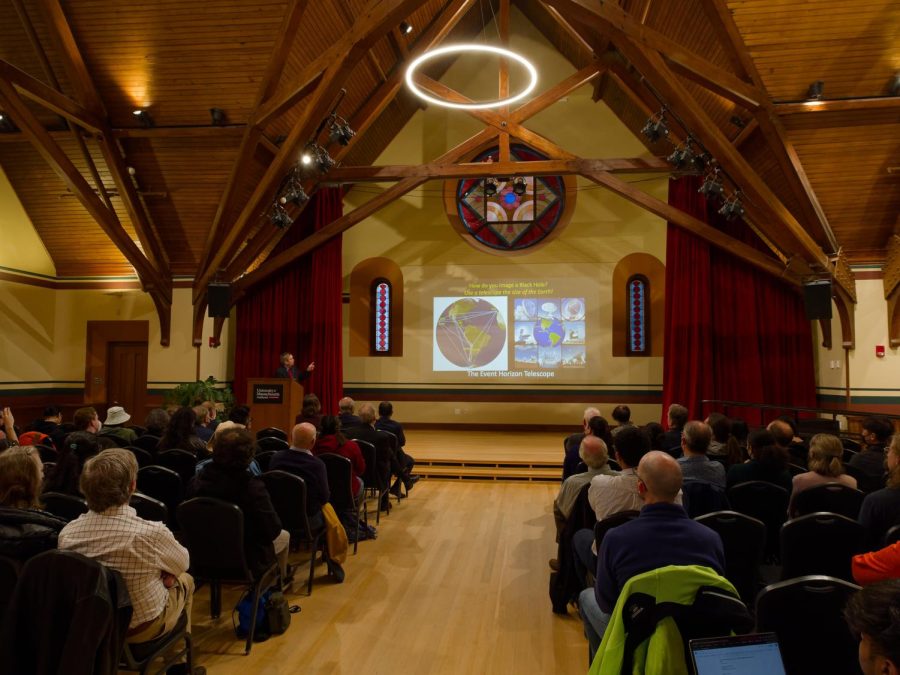Research conducted by former University of Massachusetts biology student Jonathan Giacomini and Professor Lynn S. Adler of the UMass biology department has led to a breakthrough in the marked reduction and elimination of a bee pathogen, thanks to a source hiding in plain sight: sunflowers.
The full study, recently published in Scientific Reports, includes the research of Giacomini’s Commonwealth Honors College senior thesis. His thesis was based on earlier research surrounding “floral defensive chemistry” and “floral rewards” conducted by Adler and fellow collaborator Rebecca Irwin of North Carolina State University, of whom Giacomini is now a graduate student.
A press release on the study by UMass News & Media Relations explained some of the logic behind the science:
It read, “Monarch butterflies are the prime example; they are insensitive to the poison in milkweed plants they eat, but it makes them poisonous in turn to their predators. For some reason, no one had thought about this in terms of bees, but they do eat plant pollen and nectar.”
“We started out really focusing on nectar chemistry and at first got some really exciting results and then a little later, we got some really inconsistent results and started thinking maybe we’re missing the boat by not looking at pollen,” Adler said, adding, “pollinators need pollen as well, that’s the source of protein and fats that are usually really limiting for insects.”
For Giacomini’s thesis, he and Adler conducted an experiment in the laboratory feeding three types of monofloral pollen treatments (buckwheat, canola and sunflower) and a fourth combination pollen treatment to bumble bees that the researchers had infected with the common gut-based pathogen Crithidia bombi.
Additionally, a smaller pilot study was conducted on honey bees inoculated with the rarer Nosema ceranae pathogen, and the pair conducted a similar series of tests.
“Crithidia is super common around here, we can see it in up to 80 percent of bumble bees, and it’s only bumble bees, so it doesn’t affect all bees,” said Adler.
She added, “Crithidia in the lab can be pretty benign for the bees when you’re feeding them as much as they need to eat and they don’t have to forage…Crithidia seems to be a lot more of a problem for stressed bees. So when bees aren’t getting enough food, Crithidia becomes more lethal or it can interfere with learning or foraging.”
Despite at first being a relatively routine experiment, the research yielded some unbelievable results, according to Adler. “Usually we find that different treatments reduce the amount of Crithidia, but a week later two-thirds of the bees we infected don’t have crithidia, two-thirds of them have cleared their infections as far as I can tell and the ones that do have it have really low levels, it’s like 37 times lower infections, it’s really dramatic,” she said.
For the study involving honey bees, though, Adler explained that the results were less stark. “So different pathogen, different bee, not as dramatic as what we see for Crithidia in bumble bees and with more consequences for the bee. Honey bees seem to be more sensitive to nutrient deficits.”
Nevertheless, she added, “We now have found that [the experiment is] quite consistent too, we’ve done it in [Irwin’s] lab and my lab and it seems to be a very repeatable pattern which is very exciting…but I guess I’m also equally as excited that it seems like there might actually be some relevance out in the real world.”
Adler and Giacomini had decided to expand their research from lab bumble bees to free roaming worker bumble bees at farms around Amherst to check their infections levels in correlation to sunflowers in the area.
“We can’t control where these bees came from, or how old they are, or what else they’ve been eating, or how big the farm is, or what else they’re growing or whether it’s organic or conventional…but, it’s kind of astonishing that the more sunflowers at the farm, the lower the incidents of infection in the face of all of this other noise,” Adler explained.
Despite this exciting revelation, Adler cautioned that her research and sunflowers are not the “silver bullet” to preventing bee decline and that bees need a more nutritionally varied diet than merely sunflower pollen.
The National Parks Service’s website offers a host of reasons behind why pollinator populations are currently in decline, including habitat loss, competition from non-native species, pesticide use, climate change, disease and parasitic infections.
Nevertheless, Adler doesn’t shy away from the potential implementation of sunflower as a part of the solution.
She said, “One of the neat things about sunflower is that you grow it agriculturally, but it’s also native to North America and is a native wildflower in a lot of the middle of the country…and can potentially be a non-chemical way of dealing with bee disease.”
Through additional research, Adler also affirmed that the choice in species of sunflower for testing was not simply sheer luck, but rather this bee benefit appears to be a broad trait amongst sunflower species in addition to goldenrod pollen.
“So we tested all these different kinds of pollen and they all reduced Crithidia, every last one of them, which makes me wonder if it’s a family level trait and that includes asters, daisies and chrysanthemums,” said Adler.
She hopes to find more concrete answers with more testing and increased funding to research these topics further.
Chris McLaughlin can be reached at [email protected] and followed on Twitter @ChrisMcLJournal.

